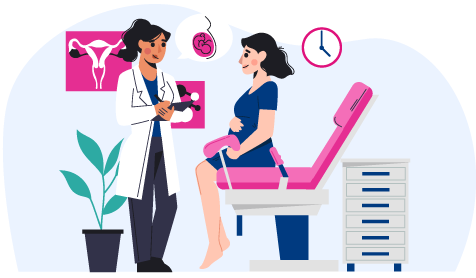Women health check-up in kukatpally
Women who play a crucial part in bringing up children and looking after family often neglect their health issues. Ironically, they are brushed under the carpet by women themselves. Women’s physiology is unique which changes drastically with age. But the irony of the truth is that once they cross the stage of nursing babies, their health becomes a forgotten concept. Several health issues can inflict them all through their lives, sapping off their energy. Here we take a look at few health conditions that afflict women, particularly which need medical attention.
Thyroid test – It is a thyroid function test that determines the levels of thyroid hormones in the blood. These hormones play a crucial role in controlling the metabolism and reproductive functions of the body.
Iron deficiency- A simple blood test can help detect an iron deficiency or anemia. As most women suffer from anemia, it is essential to get your iron levels checked frequently.
Dental checkups – Women’s dental system becomes fragile, particularly during pregnancy and after delivery. Women should take special care of their teeth during this phase.
Blood sugar tests – Getting your sugar levels checked is vital to manage and prevent diabetes, particularly in the pre-diabetic stage.

Cervical Screening: This test looks for the presence of cancerous cells. Women in their 30s are most vulnerable to developing cervical cancer. Therefore, early diagnosis can help women take preventive measures.
Blood pressure and Cholesterol tests: Women in their 40s are most likely to have blood pressure problems because of the premenopausal period and rapid hormonal changes. Blood pressure can shoot up very rapidly, damaging the artery walls and increasing the risk of heart diseases. A blood test that reveals cholesterol levels in the blood can help maintain a healthy weight.

women health checkups
Breast screening: Breast cancers are more prevalent among women of age 50 and above. A mammogram is a breast screening test, every woman between the age of 20 to 50 should take every year. When detected early, it can save the patient from pain and agony in the later stages.
Immunodeficiency tests: As you age, your immune system becomes weaker. It is more apparent in your 60s. Therefore, in your 60s, you need to be vigilant around infected environments and people. Immunodeficiency blood tests can help determine the levels of immunoglobulins in your blood. Abnormal levels might indicate an impending infection or autoimmune diseases like arthritis and inflammatory bowel disease.
Bone density scan: Women who cross their 70s should keep a check on their bone health. In the seventies, women’s bones become fragile and are vulnerable because they break at the slightest injury. This condition is called Osteoporosis, a condition in which bones lose their density. A bone density scan can help women prevent injuries and bone damage by not putting much stress on their bones.

